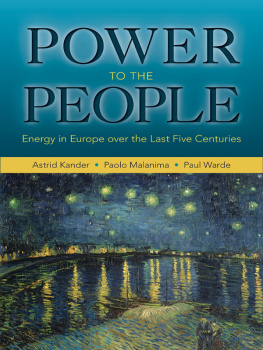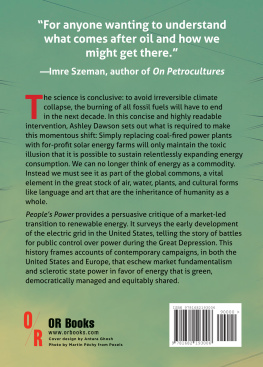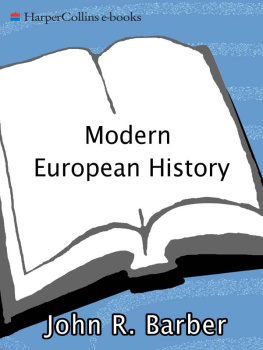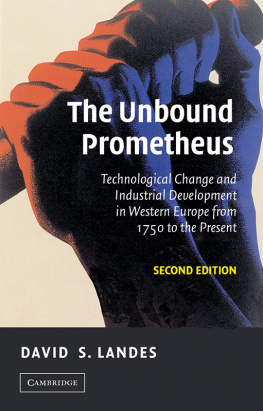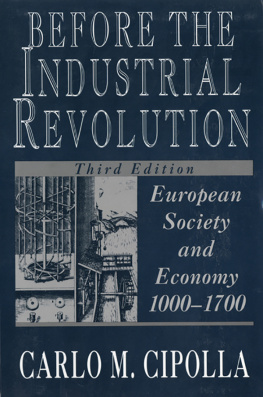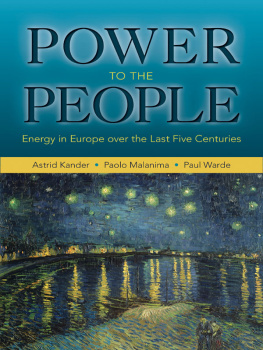
Power to the People
The Princeton Economic History of the Western World
JOEL MOKYR, SERIES EDITOR
Power to the People
ENERGY IN EUROPE OVER THE LAST FIVE CENTURIES
Astrid Kander
Paolo Malanima
Paul Warde
PRINCETON UNIVERSITY PRESS
Princeton and Oxford
Copyright 2013 by Princeton University Press
Published by Princeton University Press, 41 William Street, Princeton, New Jersey 08540
In the United Kingdom: Princeton University Press, 6 Oxford Street, Woodstock, Oxfordshire OX20 1TW
press.princeton.edu
All Rights Reserved
ISBN 978-0-691-14362-0
Library of Congress Control Number: 2013950070
British Library Cataloging-in-Publication Data is available
This book has been composed in Sabon
Printed on acid-free paper
Printed in the United States of America
10 9 8 7 6 5 4 3 2 1
Preface
THIS BOOK HAS ITS ORIGIN in a network on energy history, the LEG network (Long-term Energy and Growth). This came together in 2003 with the aim of providing standardized and comparable statistics on historical energy use for a range of European countries, as the basis for developing more reliable analyses of energy history. This has been a long and often arduous task, but one enlivened by many convivial and memorable workshops along the way. We thank heartily all of those who have helped us in producing and sharing the datasets and developing our methods: Silvana Bartoletto, Kerstin Enflo, Ben Gales, Sofia Henriques, Magnus Lindmark, Mar Rubio, Lennart Schn, David Stern, Enric Tello, Richard Unger, and Tony Wrigley. This book is in some sense the collective output of them all, although we do not seek to blame them for its flaws. We are especially grateful to Ben Gales, Mar Rubio, Silvana Bartoletto, and Sofia Henriques for devoting substantial amounts of time assembling data series for individual countries and sharing them with us to use in this book. Sofia Henriques deserves an extra heartfelt thanks for checking the consistency of our data and linking it with the International Energy Agency database from 1960.
After some years of hard work collecting data and seeking funding, three of the network set out to write a book together, that could synthesize, analyze, and push forward the research that we had assembled: Paul Warde (England), Paolo Malanima (Italy), and Astrid Kander (Sweden). This book is the result of our efforts. It is a co-authored work in that we have collectively produced the overall shape of the book, written some of the sections together, shared ideas, and subjected each other to an unending stream of criticism and advice (sometimes more welcome than at others). However, we have also divided the writing of parts of the book to reflect the particular expertise and approaches of the authors, and each author takes responsibility for our own part. Paolo Malanima writes about the pre-industrial energy system (). The approaches taken necessarily differ at times because of the scope of the subject and the data available. However, we also take collective responsibility for the whole manuscript that we have discussed for many years, and sought to build into a coherent whole. We hope it reflects our shared perspectives on energy history, but also our distinct contributions and the assistance of the many colleagues who have aided us.
One legacy of the LEG network is the construction of a new database of time-series of energy use in Europe, including both modern, and for the first time, traditional energy carriers. This full database is available at www.energyhistory.org.
Producing a book like this requiresdare we say ita lot of energy, and we know only too well that consuming energy very often requires money. We would like to express our thanks to those who have provided financial support for our project: the Centre for History and Economics, Magdalene College, Cambridge; the Leverhulme Trust; VINNOVA and CIRCLE in Sweden, the Faculty of Economics and Management at Lund University, the European Science Foundation through GLOBALEURONET for workshops; the Institute of Studies on Mediterranean Societies (National Research Council) in Naples. We have received the enthusiastic support of Princeton University Press, and our editor, Joel Mokyr: we thank them, and the anonymous readers of the manuscript who have assisted us greatly in improving it. We owe thanks to Annelieke Vries-Baaijens and Peter Robertson for preparing some of the maps and illustrations. Piotr Widulinski, Roberta Scotti, and Rta Gentvilaite have helped us with the reference list. We would also like to thank those who have participated in our many discussions and given us words of wisdom of all kinds, commented on our papers, or read drafts of the manuscript: Francesca Antolin, Bob Ayres, Nina Brandt, Martin Chick, Roger Fouquet, Chris Jones, Fridolin Kraussman, Leos Mller, Alessandro Nuvolari, Peter Pearson, Heinz Schandl, Benjamin Warr, and Chris Wigley. We hope that this volume will not be the end of our conversation, but a further stimulus to work in a field where we still have much to learn.
Astrid Kander
Paolo Malanima
Paul Warde
Power to the People
CHAPTER ONE
INTRODUCTION
WHAT NEEDS TO BE EXPLAINED
THIS BOOK IS AN ECONOMIC history of Europe viewed through the role that energy has played in that history. As such, it also aims to provide an account of the role energy can play in economic history more generally, and how energy consumption and economic development have been, are, and may be, entwined.
All things need energy, and all actions are transformations of energy. Every step, small or large, that a human takes, is part of an energy economy, and every object we treasure, use, or discard is similarly the product of that economy. We have always been children of the sun, the final source of nearly all of the energy that those living on the surface of this planet will ever consume. The way this energy, with its origins in the nuclear processes at the heart of our nearest star, is obtained and used has put its stamp on human societies since time immemorial, whether of hunter-gatherers, farmers, industrial cities, or astronauts; and whether that energy is consumed as food from plants or animals, as the driving force of wind or water, as the heat of combustion or flow of electricity. All humans that have ever lived have been equally dependent on energy, but each societys energy economy has taken on distinct forms, and some previous great societal transitions have also been, in their own way, energy revolutions.
But in a very long human history nothing quite like the past couple of hundred years has ever occurred. No previous transformation has been of the scale and intensity of modern times. Indeed, this explosive and ongoing change in scale and speed is what we now evoke with the very word modern. While the human population had for the first time advanced to a full billion by the early nineteenth century, less than two hundred years later there are seven times more of us. Yet this sevenfold advance pales beside the increase in our production, which has risen more than seventy-fold in the same period (fifty-five times in the case of Western Europe, the focus of this book). By this measure, the average inhabitant of planet Earth is today more than eleven times better off than in 1820, and in Western Europe, eighteen times better off. However we value the modern world, it is hard to describe the changes that have occurred without reaching for the lexicon of the big.
Unsurprisingly, a short era that has witnessed more economic growth than in the whole of previous history also has required much more energy. There have been many kinds of revolutions during the modern age. There has been an industrial revolution, or rather three industrial revolutions, which we will use as the organizing principle of the book. There has been an energy revolution or several energy revolutions too, as new energy conversions have been enabled or new energy carriers have been exploited.
Next page
